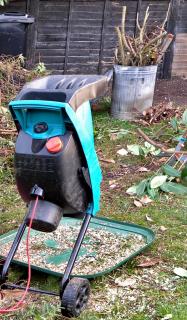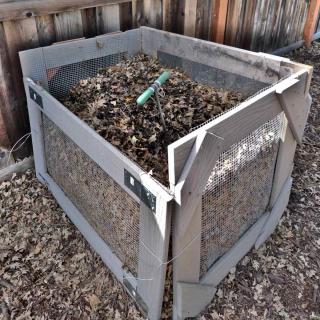

To convert your green waste into green gold like mulch and compost, invest in both a shredder and a composter.
→ Relevant:
As you’ll discover in the following lines, they both help you meet your goals in the garden. Both recycle organic material into fertilizer, but they do so in different ways.

Similarly to lawn mowers, there are two kinds of chipper shredders: electric and gas-powered drives.
In any case, since chipper shredders are only occasionally used in the garden, feel free to just rent one out. Websites dedicated to sharing or renting equipment among peers are a great help for this. It’s also a good idea to rent one out before buying, just to see if it matches your needs.

If your garden is big, it will be easy to set up heap compost, create a wire mesh compost tower or simply assemble a few boards together in a secluded spot of the garden. If your garden is small, a composter helps maximize space and also increases the visual appeal. They can come in either wood or plastic, and have different sizes.
To function correctly, the composter must not have any bottom (contents must lay directly on the ground), must have air vents, proper drainage, a lid and some kind of opening that helps collect mature compost. Remember to mix it well and check on residual moisture during droughts – you might need to add water.
While more expensive, drum composters rotate and ensure that compost matures much faster than conventional composting units. Thanks to its rotating drum, compost matures in 2 to 6 weeks. Every day, with a few turns of the wheel, the compost is ventilated, heat is spread and bacteria can work at an accelerated pace.
If you live in an apartment and wish to provide nutrients for your plants and garden boxes, a vermicompost is what you need. In a set of bins piled on one another, worms scuttle through kitchen waste and cartons to turn them into soil mix.
Whatever your option, sometimes local municipalities offer to help out in buying a composter. Check with the town hall.
Laure Hamann